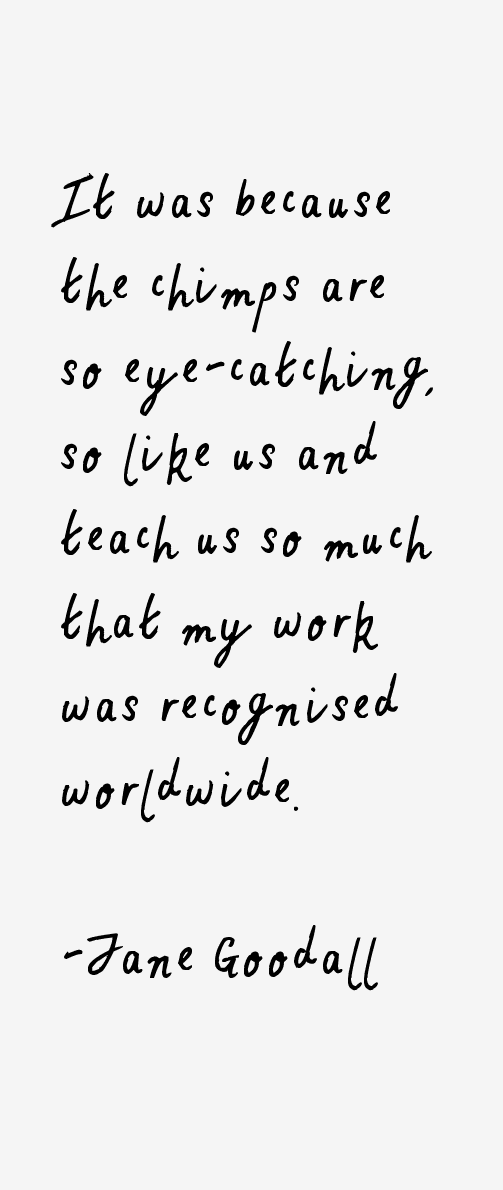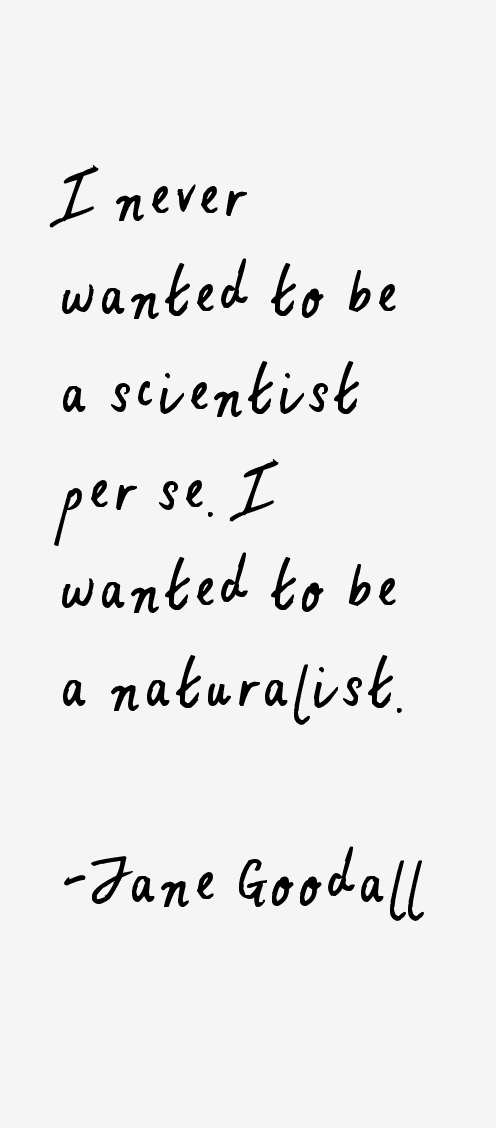Jane Goodall Quotes & Sayings (Page 6)
Jane Goodall quotes and sayings page 6 (91 year old scientist). Here's quote # 51 through 60 out of the 61 we have for her.
“The chimpanzee study was - well, it's still going on, and I think it's taught us perhaps more than anything else to be a little humble; that we are, indeed, unique primates, we humans, but we're simply not as different from the rest of the animal kingdom as we used to think.”
“The part that always shocked me was the inter-community violence among the chimps: the patrols and the vicious attacks on strangers that lead to death. It's an unfortunate parallel to human behavior - they have a dark side just as we do. We have less excuse, because we can deliberate, so I believe only we are capable of true calculated evil.”
“I don't spend that much time being introspective, believe it or not. All I know is that I grew up not questioning God because that's how you are. God was there like the birds and the wind.”

“It was because the chimps are so eye-catching, so like us and teach us so much that my work was recognised worldwide.”

“I never wanted to be a scientist per se. I wanted to be a naturalist.”
“I got to Africa. I got the opportunity to go and learn, not about any animal, but chimpanzees. I was living in my dream world, the forest in Gombe National Park in Tanzania. It was Tanganyika when I began.”
“I was born in London in England in 1934. I went through, as a child, the horrors of World War II, through a time when food was rationed and we learned to be very careful, and we never had more to eat than what we needed to eat. There was no waste. Everything was used.”
“I did this book 'Harvest for Hope,' and I learned so much about food. And one thing I learned is that we have the guts not of a carnivore, but of an herbivore. Herbivore guts are very long because they have to get the last bit of nutrition out of leaves and things.”
“I would never say I was an icon, but so many people have said I am, so I suppose I am. I mean, I can't not be what everyone says I am. But I don't feel like an icon.”
“There are certain characteristics that define a good chimp mother. She is patient, she is protective but she is not over-protective - that is really important. She is tolerant, but she can impose discipline. She is affectionate. She plays. And the most important of all: she is supportive.”
Jane Goodall Quotes Rating
No Ratings Yet
Leave A Comment
























